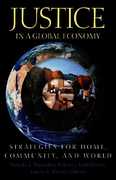Question
CLO's assessed: Analyse the concept of a nation's balance of payments to examine the economic importance of changes in a nation's net foreign wealth position.
CLO's assessed:
- Analyse the concept of a nation's balance of payments to examine the economic importance of changes in a nation's net foreign wealth position.
- Synthesize and evaluate theories of exchange rate determination.
- Assess the policy options available in an open macroeconomic environment.
- Evaluate the extent to which macroeconomic policy effectiveness is affected by macroeconomic openness.
- Assess the implications of a government's choice between a fixed and a floating exchange rate regime.
- Analyse the causes and effects of currency crises.
Final AssessmentTASK
"The US Federal Reserve says that it expects economic growth to rise sharply this year along with inflation but Jerome Powell, the Fed chair, said that despite this,interest rates were unlikely to rise through 2023.(Links to an external site.)
Economists have been fretting recently that inflation could rise due to improving economic prospects brought on by the reopening of the economy, theramping up of vaccinations(Links to an external site.)
and the Biden administration's massive stimulus package. But Powell believes any bump in inflation this year "will be short-lived."(Murfett 2021)
Examined how the United States domestic fiscal and monetary policy might impact on the Asia pacific region, specifically on Australian and Singaporean economies. In your answer consider likely scenarios of US expansionary fiscal and monetary policy on Singaporean and Australian economies. In your assessment of the likely impacts of US policy on Singapore and Australia, use the theoretical tools and concepts developed in the course, for example:-
- Current macroeconomic indicators including the balance of payments of the US, Singapore and Australia to get an understanding of the current international macroeconomic context to then assess how changes might impact on International flows in goods and assets for each country.
- Consider real interest rate differentials across countries and relative growth rates - what would the intertemporal model predict about capital flows and the current account balances of the three countries. Note; inflation rates and expected inflation rates will be important to consider here also.
- How might changes impact on the exchange value of the currencies of the three economies and why. Critically examine Australia and Singapore's exchange rate mechanism and examine the possible costs and benefits of exchange rate management (You can apply the flexible V fixed exchange rate example for illustration purposes)
- Use the IS LM BP model to illustrate the macroeconomic spill over effects of US policy on the various countries
- Critically examine other concepts developed in the course that might be relevant - these may include the Swan diagram, RER, currency crisis,
Step by Step Solution
There are 3 Steps involved in it
Step: 1

Get Instant Access to Expert-Tailored Solutions
See step-by-step solutions with expert insights and AI powered tools for academic success
Step: 2

Step: 3

Ace Your Homework with AI
Get the answers you need in no time with our AI-driven, step-by-step assistance
Get Started


